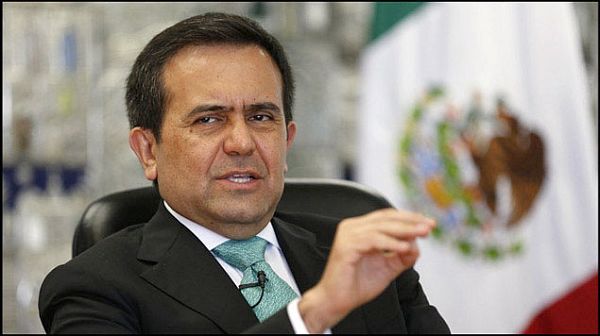Mexico City - The North American Free Trade Negotiations have turned into a blame game about which party is doing the most to damage the deal. Needless to say, little progress seems to have been made at the fifth round of negotiations that wrapped in Mexico City on Tuesday, November 21.
U.S. Trade Representative Robert Lighthizer is blaming Canada and Mexico for stalling the talks that gathered nearly 30 negotiating groups.
"While we have made progress on some of our efforts to modernize NAFTA, I remain concerned about the lack of headway," he said in a statement released on the conclusion of the negotiations. "Thus far, we have seen no evidence that Canada or Mexico are willing to seriously engage on provisions that will lead to a rebalanced agreement. Absent rebalancing, we will not reach a satisfactory result." The statement smacks of President Trump's earlier promise to pull the U.S. from NAFTA if the parties couldn't reach a deal that would be beneficial domestically.
 |
Canada is also blaming the U.S. for the fumbled forward movement on talks, and the country's Foreign Affairs Minister Chrystia Freeland said Canada is hoping for the best, though prepared for the worst. "There are some areas where more extreme proposals have been put forward, and these are proposals that we simply cannot agree to," Freeland said to reporters on CBC News Canada following the talks. She added that the U.S. stance on contentious issues tying up the talks has largely remained unchanged."
Among the problems appears to be the United States pushing to raise the requirement under the rules of origin for American content in cars to 85 percent from its current 62.5 percent - which Canada and Mexico have so far rejected.
Freeland said, for now, Canada is after a "fact-based approach" to clarify some of these proposals, in particular with regard to the rules of origin, as she said she's understood from the auto sector that some of the proposals would not only be harmful for Canada, but also for the U.S.
"The talks can be divided into three topic areas - those that are necessary to modernize the agreement, those that the U.S. has traditionally pushed for in trade agreements, and those that the new administration has brought to the table. Many of these new ideas are strongly opposed by our trading partners and many in the U.S. business community. Those ideas - and the lingering threat of withdrawal - are adversely affecting progress of the overall negotiations. That said, there is definitely progress and constructive conversation on the ideas that update and modernize the agreement," said American Apparel and Footwear Association executive vice president Steve Lamar, who attended the Mexico City talks. "For our part, we have continued to meet with stakeholders and negotiators to emphasize the need to ease regional trade for the textile, apparel and footwear industry as a sure way to support U.S. jobs in our sector."
A trilateral statement at the end of the talks couldn't have been more brief, noting hardly more than, "Chief negotiators concentrated on making progress with the aim of narrowing gaps and finding solutions. As a result, progress was made in a number of chapters... Chief negotiators reaffirmed their commitment to moving forward in all areas of the negotiations, in order to conclude negotiations as soon as possible."
The three parties are expected to meet in Washington next month for an "intersessional meeting," and in Montreal for the sixth round of talks Jan. 23-28. Lighthizer expressed hope that the next round would prove better than the last.
"I hope our partners will come to the table in a serious way so we can see meaningful progress before the end of the year," he said.
Original article


